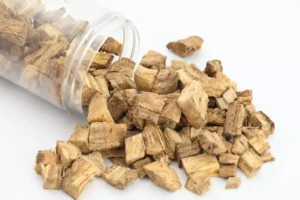
Additionally, the NIAAA notes that people who start drinking before age 15 are more than three times as likely to develop AUD as an adult than people who waited until age 21 to start drinking. Screening youth for alcohol use and AUD is very important and may prevent problems down the road. Screening by a primary care provider or other health practitioner (e.g., pediatrician) provides an opportunity to identify problems early and address them before they escalate. It also allows adolescents to ask questions of a knowledgeable adult. NIAAA and the American Academy of Pediatrics both recommend that all youth be regularly screened for alcohol use.

Health On the Net Foundation
- However, evaluationnot only validates effective approaches, it also providesinformation that is essential for improving or enhancing treatmentstrategies (Muck etal., 2001).
- Teens tend to try new things and take risks, so they may take drugs or drink alcohol because it seems exciting.
- Consider connecting online, through social media, or by phone or mail.
- Vouchers to promote attendance and the completion ofactivities allow program providers to reinforce positive behavior(Drug Strategies,2003).
This is not simply a problem alcohol rehab for some families—it is a nationwide concern. Know where and how to get treatment and other support services and resources, including counseling or therapy (in person or through telehealth services). Over time, drinking too much alcohol may cause health problems.
NIAAA
Alcohol is a depressant, which means it slows the function of the central nervous system. Alcohol actually blocks some of the messages trying to get to the brain. This alters a person’s perceptions, emotions, movement, vision, and hearing. A .gov website belongs to an official government organization in the United States. You need help right now and several organizations are ready to lend a hand.

How to talk to your teen about underage drinking
Encouraging healthy interests and activities can help to boost their self-esteem and build resilience, qualities that make teens less likely to develop problems with alcohol. Kids face a huge amount of stress as they https://ecosoberhouse.com/ navigate the teenage years. Many turn to alcohol to relieve stress, cope with the pressures of school, to deal with major life changes, like a move or divorce, or to self-medicate a mental health issue such as anxiety or depression. Talk to your child about what’s going on in their life and any issues that may have prompted their alcohol use.

Depression in Older Adults

Unfortunately, only one person in seven who would qualifyfor treatment was admitted to treatment in 1999 (National Institute on Drug Abuse NIDACommunity Epidemiology Work Group, 1999). The potential benefitfrom increased early treatment is profound. For more information about alcohol’s effects on the body, please see the NIAAA Interactive Body.
Alcohol and the Adolescent Brain: What We’ve Learned and Where the Data Are Taking Us
In the TC model, substance use disorders are viewed assymptoms of broader problems in life. During those years of transition between childhood and adulthood, the brain grows and changes in many important ways that are crucial for that transition to be successful. When teens and young adults drink alcohol, it can interfere with that process of brain development in ways that affect the rest of their lives. Teenagers who drink alcohol are more likely to engage in risky behaviors such as drinking and driving as well as getting in the car of a driver who has been drinking.
- In both adolescents and adults, drinking also compromises the ability to sense danger by disrupting the function of a brain region called the amygdala.
- You need help right now and several organizations are ready to lend a hand.
- Beliefs (“drinking will help merelax”) and urges (“I need to have a drink!”) determine how anindividual is likely to respond to these cues.
If you can’t approach your parents, talk to your doctor, school counselor, clergy member, aunt, or uncle. It can be hard for some people to talk to adults about these issues, but a supportive person in a position to help can refer students to a drug and alcohol counselor for evaluation and treatment. Outpatient treatment services provide a broad range of intensity of care levels,but do not offer overnight supervision. The methods of treatmentoften focus on cognitive behavioral therapy and family therapy. Thefrequency of contact is adjusted to meet the specific needs of thepresenting individual. More intensive programs can range from 9 to 20hours per week teen alcoholism and may include therapy on weekends.
- The goal of inpatient treatment is toprovide sufficient structure to allow the patient to make major lifechanges, while strictly limiting access to alcohol and drugs.
- You can teach your teen these ways to say no if your teen is offered a drink.
- During those years of transition between childhood and adulthood, the brain grows and changes in many important ways that are crucial for that transition to be successful.
- In most states and local jurisdictions, use of alcohol by underage individuals is illegal, though there are a few exceptions.
However, frequent alcohol misuse may eventually lead to AUD, according to the NIAAA.
Leave a Reply